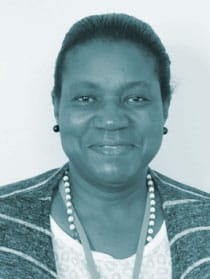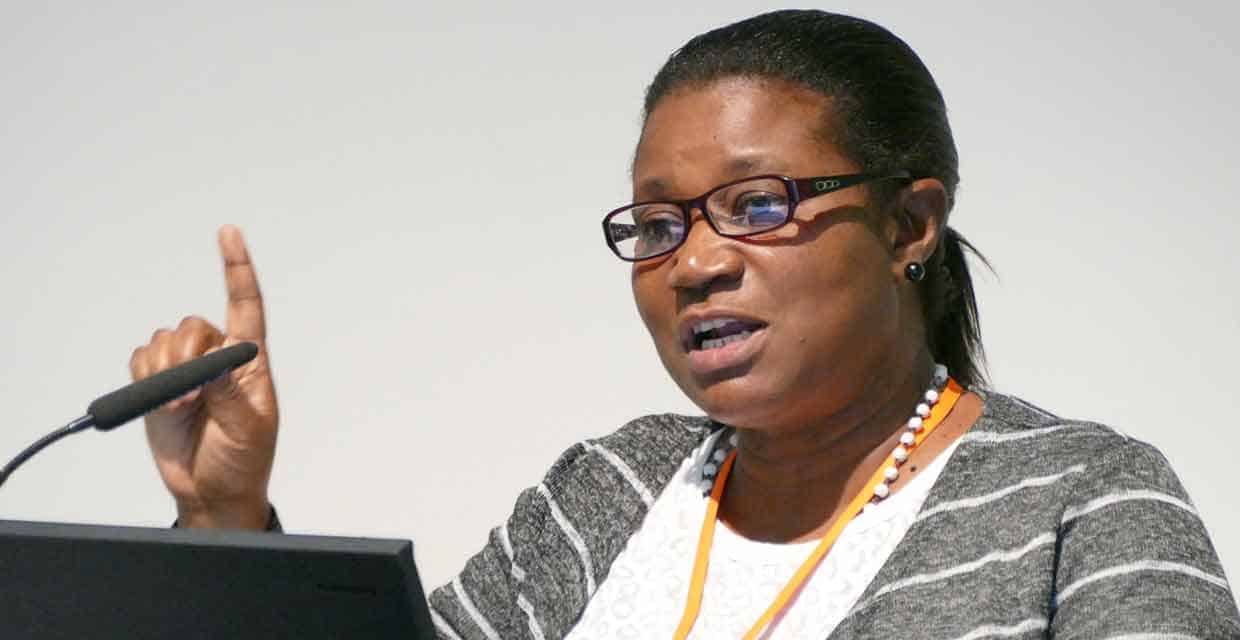“We want to be the partners that create the agenda”
Interview with Rose Molokoane
The idea of partnerships plays an important role in the formulation of the New Urban Agenda. But how can local communities have a real chance to participate? In an interview with Urbanet, Rose Molokoane, Deputy President of Slum Dwellers International (SDI), shares her vision of a New Urban Agenda co-created by the urban poor.
Ms. Molokoane, in a speech held at the Thematic Habitat III Meeting on informal settlements in Pretoria you said that the New Urban Agenda must be the agenda of the people living in informal settlements. Could you explain what you meant by that?
A New Urban Agenda that is dedicated to dealing with informal settlements should be guided by the ideas coming directly from the informal settlements, as informal settlers are the ones who are affected by the agenda in their day-to-day lives. They know the challenge of not having access to water, good sanitation or security of tenure. They are the ones who are affected.
So what I’m trying to say is that there should be a real partnership, and the voices of the people should be heard and be incorporated in the New Urban Agenda. That is why it is important that the member states collaborate with civil societies and communities. We don’t want to become the subject on the agenda; we want to be the partners that create the agenda. We want to be the driving force of the implementation of the agenda, because this is the agenda that is going to affect our lives.
You are demanding real partnerships between governments and communities of the urban poor. In your opinion, what are the criteria for real partnerships?
We need implementable partnerships – not just partnerships written on paper, but partnerships that are linked to concrete problems and projects. We should all together go to the settlement and see what is happening on the ground. And we need partnerships that are institutionalised, meaning that they have a structure that consists of community members, civil societies, the private sector, local authorities, regional governments and national governments. Then they come together, maybe once every two months, or once a year, to deal with the issues on the ground.
What is the most important requirement for a New Urban Agenda that has the potential to really address and influence the lives of the urban poor?
A lot of people who participated in the Agenda 21 process said that not much has been achieved since Habitat II. So let us identify and address the challenges that have caused us not to achieve a lot since Habitat II. I think I understand what those challenges are: security of tenure, acquisition of land, unemployment, education, health, housing, entire human settlement problems. We need new strategies that will help us to tackle those issues.
One really important thing is information and data from the communities. Communities should be given the possibility to collect their own data and present it to the municipalities so they can have better planning for their settlements. People from informal settlements have the expertise to help governments to improve their planning. So let us be allowed the space and platform to show our expertise.
We have to have a paradigm shift in the way we think, and we have to include the people who are affected. The New Urban Agenda must bridge the gap between the informal and the formal world. There is a big gap between the two. We have many ideas that are so different, but if we come together we can augment each others ideas. Then the New Urban Agenda will have a very good basis of participation, partnerships and inclusiveness.

- “We want to be the partners that create the agenda” - 21. July 2016
